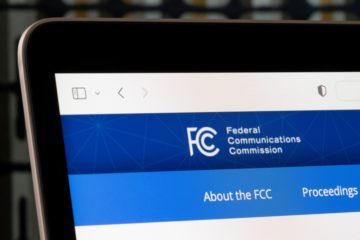Temu—a Chinese e-commerce platform accused of slave labor and tax evasion—has skyrocketed in popularity in the U.S., becoming the most downloaded app of 2024. Instead of investigating Temu, the Federal Trade Commission under Lina Khan reached out to them for help in its antitrust case against Amazon.
That’s right: the FTC turned to a controversial Chinese company to target one of America’s most successful employers and innovators. As new FTC Chair Andrew Ferguson weighs whether to continue the case, this moment is a test of whether the agency will prioritize sound economics and American leadership—or continue down the failed path of “Khanservatism.”
Below is an extended excerpt from a new article by Market Institute Senior Fellow Norm Singleton at The Libertarian Institute explaining how we got here—and why it’s time to drop the case.
“Temu, a Chinese-based online retailer that has been available in the United States since the fall of 2022. Quickly become a leading online retailer, Temu has grown so fast that Bernstein analyst Robin Zhu projects that the site will generate as much as $1.8 billion in merchandise sales this year. Temu was the Apple store’s most downloaded app in 2024—and it currently has over 51 million American users.
Temu’s rise has not been without controversy. Secretary of State Marco Rubio has accused Temu of using slave labor and manipulating their prices to avoid having to pay U.S. taxes and comply with domestic safety standards. Secretary Rubio and other Temu critics maintain these practices are what allows Temu to offer items such as beauty products for pennies and children’s clothes for $10. Given Temu’s quick rise and the accusations of human rights violations and other unfair business practices—it is not surprising that the company attracted the attention of former Federal Trade Commission (FTC) Chair Lina Khan. Khan had the FTC contact Temu in the waning days of her chairmanship by letter and phone to get information about Amazon—specifically Amazon’s price practices.
That’s right: Chair Khan contacted a Chinese company for assistance in the FTC’s litigation against a successful American company. The FTC’s actions may have been inspired by Amazon’s recent steps toward enforcing their rule that businesses that use an Amazon platform to sell goods cannot sell their goods at a lower price on another platform. According to The Information, Amazon removed the “buy now” button from a number of Chinese businesses whose products are available for less on Temu. This has led at least one major Chinese company, electronics manufacturer Anker Innovations, to stop selling their products on Temu’s U.S. site.
Amazon’s requirement that non-Amazon vendors that use Amazon’s platforms not sell their products for less on other platforms protects Amazon’s status as having the lowest prices available online. This is a key factor behind Amazon’s growth from Jeff Bezos selling books out of a rented warehouse to becoming the go-to source for everything from toys to toilet paper. It makes sense that Amazon would not want to let other businesses use their platform to jeopardize Amazon’s status as the low-price leader.
The business justification for Amazon’s lowest price policy is not grasped by Lina Khan. The low price policy is one of the major components of the FTC’s antitrust lawsuit against Amazon. Now Andrew Ferguson, Lina Khan’s successor as FTC Chair, must decide whether to continue prosecuting Amazon, negotiate a settlement with the company, or drop the case. Chair Ferguson has promised to be more friendly to businesses than Khan. However, when it comes to big tech companies like Amazon—Chair Ferguson can be a “Khanservative.” Therefore, he might be tempted to pursue the case against Amazon.
The concern over Temu and their emergence as a major competitor to Amazon and other American online retailers strengthens the case for dropping the lawsuit. Temu will be one of the biggest beneficiaries if the FTC pursues the case and succeeds in stopping Amazon from removing, or otherwise punishing businesses which sell their products on other platforms for less than they sell them on Amazon. Pursuing a legal case against a major American retailer that employs over one million Americans—and is used by consumers all over the world—contradicts President Donald Trump’s promise to usher in a new golden age of peace and prosperity. It will also create conflict between Chair Ferguson and other members of the Trump Administration like Secretary Rubio—as well as congressional China “hawks” and more libertarian members of the Republican Party.”


